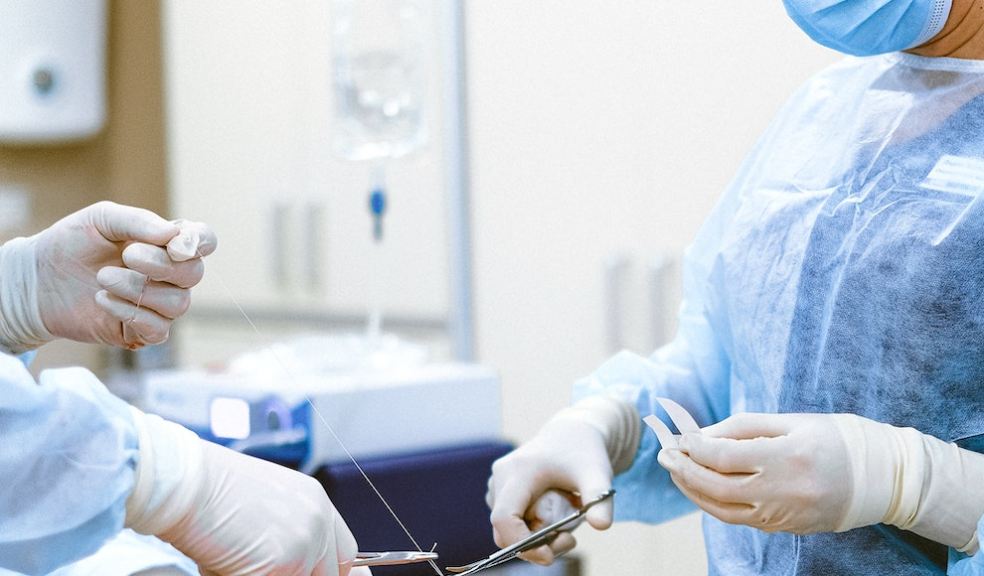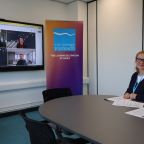
webop: E-Learning Revolutionizes Medical Studies
webop: E-Learning Revolutionizes Medical Studies
Traditional teaching aids designed to prepare medical students and surgeons for their practice often encounter limitations in integrating theoretical knowledge with practical application. The "webop concept”, developed by visionary experts from Germany, presents a solution to this challenge and could pave the way for a new era in medical education. This article introduces the contents and benefits of this e-learning concept for doctors and medical students.
The Challenge of Traditional Learning Resources for Medical Studies
Medicine is a discipline that requires both profound theoretical knowledge and hands-on experience. While standard textbooks may offer impressively detailed information and illustrations, they frequently lack the ability to link this content with real-life, practical scenarios in the operating theatre:
- A surgeon needs to understand not just the theoretical procedure but also what it feels like in practice, the potential challenges, and how best to respond to unexpected situations. An e-learning platform equipped with resources such as video material helps to depict surgeries as realistically as possible, preparing for initial hands-on experiences.
- Medicine is an ever-evolving field. New techniques, tools, and insights are continuously emerging. Traditional textbooks often struggle to keep pace with this rapid development, leading to outdated or incomplete information. This means prospective doctors and surgeons might not be familiar with the latest best practices, ultimately impacting their ability to offer optimal patient care.
Such shortcomings highlight the need for a new, adaptive, and interactive teaching resource to bridge these gaps.
webop: A Visionary Solution from Germany
In the context of these challenges, the webop concept was born, an initiative by Prof. Markus Maria Heiss and Dr. Carolina Pape-Köhler from Cologne, Germany. With the aim of bridging this educational gap, they created an online reference tool offering not just knowledge but also practical guidance for surgical procedures.
- Click here to explore the e-learning platform.
Developed and implemented at the Department of Surgery at Witten/Herdecke University, webop combines the advantages of digital technology with solid medical expertise to provide both seasoned surgeons and medical students with deeper insights and enhanced skills.
The result is an intuitive, consistently updated online reference for surgical procedures, surpassing what traditional medical books can provide.
webop Content: What is Included?
webop provides a plethora of content spanning general, visceral, and vascular surgery. Curated by international surgeons, the material is tailored to impart expert knowledge and techniques to both budding and practising surgeons. Core elements of webop include:
- Surgery Video-Clips
webop’s biggest selling-facor are their in-depth video clips demonstrating various surgical procedures. These videos illuminate the critical steps of each method, allowing for pause and rewind at the user's discretion.
- Textual Explanations
Texts complement the video clips, forming a cohesive didactic unit. They provide detailed insights and explanations regarding each surgical step. Links within the texts navigate to comprehensive descriptions of specific details in an eBook format.
- Lectures
A team of renowned author-surgeons contributes to webop. These experts ensure that the information and guidelines provided are both precise and scientifically sound. Their lectures cover a variety of content, from surgical techniques to current best practices.
Moreover, webop not only serves as an educational platform but also as a professional network, showcasing products and services while enabling professionals to enhance their profile within the medical community. Consequently, the tool helps establish high-quality medical treatment standards globally.
- Individuals can opt for monthly or yearly subscriptions to access webop. Clinics benefit from discounted rates, facilitating their staff and students' access to the educational content.
Conclusion: The Future of Medical Education
Today's traditional teaching tools often lack the flexibility and currency required for premium medical education. The webop concept, conceived by visionary German experts, elevates medical studies to a new pedestal. Incorporating in-depth video clips, well-founded text explanations, and expert lectures, webop not only facilitates practical education but also fosters international knowledge exchange and unified standards of care within the medical community.
By empowering medical students and professionals to bridge the gap between theory and practice, webop stands at the forefront of a revolution in medical education, paving the way for more efficient and effective patient care.











